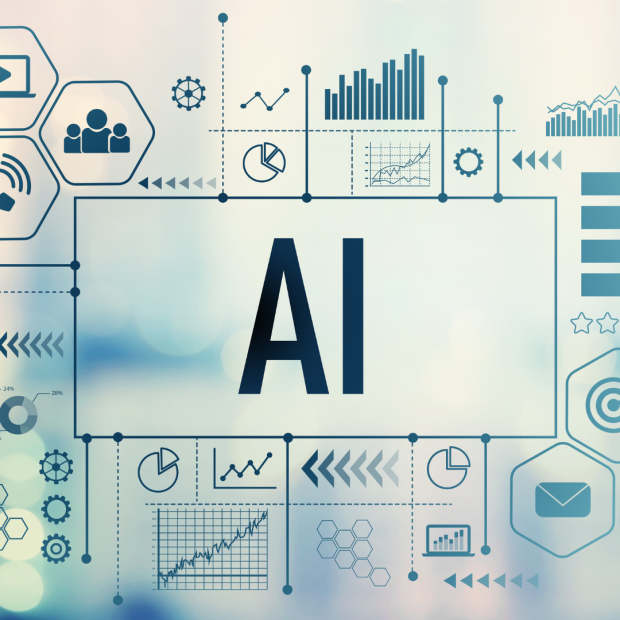In a world where companies are relying on AI to make decisions, it’s safe to say that the future is now. With the introduction of AI into every aspect of our lives, people are seeing how much easier it is to manage and conduct business operations.
What is AI?
AI is a computer system that can interpret, understand and respond to human behaviour. It is a branch of artificial intelligence that focuses on the ability of computers to learn from data and make intelligent decisions.
AI has changed the way businesses operate and how they’re reaching customers. Some of the ways AI has impacted businesses include:
- AI has allowed businesses to automate processes, which has helped them save time and energy.
- AI has made it possible for businesses to track customer data more effectively, which has led to smarter marketing campaigns and improved customer service.
- AI has enhanced the way business operations are managed, which has led to cost savings and greater efficiency.
Different Types of AI
AI has changed the way businesses operate and how they’re reaching customers. In fact, it’s become so popular that some companies are using AI to automate their customer service. Here’s a look at some of the different types of AI:
- Natural Language Processing (NLP)
- Machine Learning
- Robotics
- Computer Vision
- Speech Recognition
- Understanding Context
Benefits of Using AI in Business
AI has changed the way businesses operate and how they’re reaching customers. By using AI, businesses can automate their processes, save time and money, and improve customer service. Below are ten of the many benefits of using AI in business:
1. Automation
Businesses can use digital transformation software to automate their processes, which can increase their efficiency by reducing the amount of manual work taking place. In the case of a logistics company, for instance, AI can be used to automate the entire order fulfillment process, from taking orders to inventory management and shipping. This reduces time and cost and enables the company to respond quickly to customer demands.
2. Improved Customer Service
With AI technologies, businesses can provide better customer service by automating repetitive tasks. For example, a business could use AI to help customers find products or make reservations.
3. Improved Efficiency
AI technologies can help businesses achieve improved efficiency by automating certain tasks. For example, a retail business could use an (accounts payable) AP Automation Software to increase efficiency when it comes to payment processing, expense management, and other similar tasks.
4. Increased Productivity
By automating certain tasks, businesses can increase their productivity. For example, a business could use AI to manage marketing campaigns or data analysis.
5. Greater Awareness of Customers
With AI technology, businesses can become more aware of their customers’ needs and preferences. This increased awareness can lead to better customer service and increased sales opportunities.
6. Greater Innovation
With AI technology, businesses can generate new ideas faster and more efficiently. For example, a business could use AI to develop new product concepts or optimize marketing campaigns. Similarly, someone starting a new retail store can take advantage of AI to scan the space to get recommendations for designing the interiors. The AI can process the information and suggest styles and fixtures for the stores. Based on the suggestions, the business owner can purchase display cases, wall fixtures, Slatwall Accessories, lighting, etc. This way, business owners can potentially save a significant amount of money on hiring expensive interior designers and allocate their resources towards other important aspects of their retail business.
7. Reduced Costs
AI technologies can help businesses reduce costs by automating tasks that are currently done manually. For example, a business could use AI to manage finances or track customer data.
8. Increased Security
By using AI technologies, businesses can increase their security by automating processes that are currently done manually. For example, a business could use AI to protect data from hackers or automate customer service responses.
9. Greater Transparency
By using AI technologies, businesses can be more transparent with their customers by automating certain processes. For example, a business could use AI to create transparency reports or provide real-time updates on customer service interactions.
10. Increased Revenue
By using AI technologies, businesses can increase their revenue by automating tasks that are currently done manually or inefficiently. For example, a business could use AI to create marketing proposals or optimize sales presentations.
How to Use AI in Business
AI has changed the way businesses operate and how they’re reaching customers. With the help of AI, businesses can more easily identify customer needs and deliver a better experience to their customers.
One way to use AI in business is to use chatbots. Chatbots are computer programs that can simulate human conversation. They’re used by businesses to provide customer service and respond to customer inquiries.
Another way to use AI in business is through predictive analytics. Predictive analytics uses data analysis to make predictions about future events or behavior. This information can be used by businesses to improve their operations and reach a wider audience. It is especially helpful in marketing. Using tools from companies such as adverity and others, businesses can make sense of their customer data and improve upon their marketing strategies accordingly.
By using AI in business, businesses can improve their overall operations and reach a wider audience.


